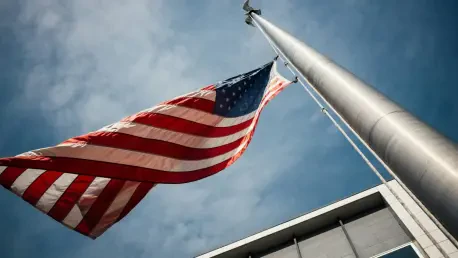Recent years have witnessed a growing debate surrounding the influence of political interventions on higher education in America, sparking concern among educators and scholars. At the center of this debate is the statement issued by the American Association of Philosophy Teachers (AAPT) condemning specific actions from the previous federal administration. These actions, they argue, threaten the integrity and core principles vital to educational institutions. Key concerns include efforts to impose restrictive “educational gag orders,” rollbacks on Diversity, Equity, and Inclusion (DEI) initiatives, and significant reductions in funding allocated for education. Moreover, the revocation of international student visas and increased penalties for protected speech reflect a worrying trend that universities are grappling with. With these challenges, academic freedom appears to be increasingly under siege, prompting vital questions about the future of free inquiry and the foundational elements that support diverse and inclusive educational settings.
The Restrictive Legislative Landscape
The Erosion of Academic Freedoms
A pivotal aspect of the ongoing debate is the perception that recent legislative initiatives constrain academic freedom and expression on campuses. Academic institutions, traditionally bastions of free speech and intellectual exchange, face pressures against their capacity to encourage open dialogue and the exploration of controversial topics. With new policies curbing certain discussions, faculty members express concerns over potential ramifications for fostering an environment conducive to critical discourse. The introduction of “educational gag orders” seeks to restrict or reshape course content, creating tension between educational objectives and political mandates. Faculty fear such measures threaten the ability of professors to present diverse perspectives, which are essential for developing independent thinking among students. The limitations placed on academic autonomy not only stifle educational engagement but also hinder the nurturing of future thinkers who can adeptly navigate a pluralistic society.
Impact on Diversity and Inclusion Efforts
An additional concern is the dismantling of Diversity, Equity, and Inclusion (DEI) programs within higher education settings, flagged by the AAPT as detrimental to the enrichment of university culture. Advocates of DEI initiatives argue that nurturing a diverse faculty and student body is crucial for fostering a rich academic environment, as it enhances cultural competence and broadens intellectual horizons. Such programs encourage a range of ideas and life experiences, integral to promoting critical thinking and empathy. Unfortunately, legislative and political pressures against DEI endeavors threaten to reverse progress made in cultivating inclusive communities on campus. Curtailing these initiatives poses a significant obstacle to achieving educational equity, potentially impacting the quality and relevance of both teaching and research. The drive to maintain a varied academic landscape is seen as fundamental not only to pedagogy but also to equipping students with skills necessary for thriving in an interconnected world.
Plotting the Course for Higher Education
Reaffirming Educational Objectives
As institutions confront these challenges, a resolute call emerges from educators emphasizing the need to reaffirm the core objectives of higher education. The AAPT and other scholarly bodies advocate for maintaining an environment where students and faculty can freely engage with complex, sometimes controversial issues through open discourse. They assert that preserving intellectual curiosity and academic freedom is essential not merely for educational purposes but also for upholding democratic values. Higher education serves as a critical platform for developing discernment and reasoned argumentation, allowing students to challenge assumptions and explore diverse viewpoints. The ability to nurture autonomous thinkers capable of meaningful participation in society hinges on the protection of these educational objectives amidst potential political encroachments.
Ensuring Institutional Autonomy
In recent years, the impact of political interventions on American higher education has sparked increasing debate, raising alarms among educators and scholars. Central to this conversation is a statement from the American Association of Philosophy Teachers (AAPT), which denounces actions from the prior federal administration that, they claim, jeopardize the essential principles and integrity of educational institutions. Major concerns are the imposition of restrictive “educational gag orders,” the rollback of Diversity, Equity, and Inclusion (DEI) initiatives, and drastic reductions in educational funding. Additionally, the revocation of international student visas and heightened penalties for protected speech point to a troubling trend confronting universities. This environment poses a threat to academic freedom, leading to critical questions about the future of open inquiry and the foundational elements supporting diverse, inclusive educational settings. As these challenges mount, the academic community must wrestle with preserving core educational values.









